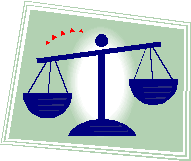Debt Collection Law Often Misunderstood
Sharp Thinking
Thinking
No. 62 Perspectives on Developments in the Law from The Sharp Law Firm, P.C. April 2012
Debt Collection Law Often Misunderstood
First of three issues on the federal Fair Debt Collection Practices Act.
Understanding of Federal Statute Often Lacking Even Among Those Who Use It
By John T. Hundley, Jhundley@lotsharp.com, 618-242-0246
Individuals who are mistakenly dunned by debt collectors have standing to seek relief under the Fair Debt Collection Practices Act, 15 U.S.C. §§ 1692 et seq. (“FDCPA”), a federal appeals court ruled recently. However, debts not arising from consensual consumer transactions for goods or services are not “debts” covered by that act, another appeals court has ruled.
The standing decision came in Dunham v. Portfolio Recovery Assoc., LLC, 663 F.3d 997 (8th Cir. 2011). In that case, the debt collector sent a dunning letter to the wrong James Dunham, and the recipient sued, claiming the collector had not undertaken adequate investigation to verify the debt. The court rejected the collector’s argument that standing was limited to the “consumer” who was the actual debtor, but affirmed judgment for defendant on the alternative ground that it had made an adequate verification effort even though it had not contacted the original creditor in that effort.
The “consensual consumer transaction” test for covered “debts” was adopted by the 7th Circuit U.S. Court of Appeals in Gulley v. Markoff & Krasny, 664 F.3d 1073 (7th Cir. 2011). There a landowner had sued a collection firm complaining of its practices in collecting municipal fines. The court ruled such fines were not covered by the FDCPA.
The pair of cases demonstrates the complexity of the federal statute, which we will address in this and the next two issues of Sharp Thinking.
Covered “Debts” Limited. Because the act aims to protect consumers, a debt subject thereto is  defined as an “obligation or alleged obligation of a consumer to pay money arising out of a transaction in which the money, property, insurance, or services which are the subject of the transaction are primarily for personal, family, or household purposes”. § 1692a(5). Hence the act generally will not apply to business debts. Miller v. McCalla, Raymer, Padrick, Cobb, Nichols & Clark, L.L.C., 214 F.3d 872 (7th Cir. 2000). An extension of credit is not the talisman for deciding whether a liability is a debt. Rather, the most critical factor seems to be whether the alleged liability is based on a contract or other consensual obligation. See Bass v. Stolper, Koritzinsky, Brewster & Neider, S.C., 111 F.3d 1322 (7th Cir. 1997); Gulley v. Markoff & Krasny, discussed above.
defined as an “obligation or alleged obligation of a consumer to pay money arising out of a transaction in which the money, property, insurance, or services which are the subject of the transaction are primarily for personal, family, or household purposes”. § 1692a(5). Hence the act generally will not apply to business debts. Miller v. McCalla, Raymer, Padrick, Cobb, Nichols & Clark, L.L.C., 214 F.3d 872 (7th Cir. 2000). An extension of credit is not the talisman for deciding whether a liability is a debt. Rather, the most critical factor seems to be whether the alleged liability is based on a contract or other consensual obligation. See Bass v. Stolper, Koritzinsky, Brewster & Neider, S.C., 111 F.3d 1322 (7th Cir. 1997); Gulley v. Markoff & Krasny, discussed above.
Who Is A “Debt Collector”? Most FDCPA proscriptions apply only to “debt collectors”, a term which generally includes “any person who uses any instrumentality of interstate commerce or the mails in any business the principal purpose of which is the collection of any debts, or who regularly collects or attempts to collect, directly or indirectly, debts owed or due or asserted to be owed or due another.” § 1692a(6); McCready v. eBay, Inc., 453 F.3d 882 (7th Cir. 2006). The effect of the word “another” in that passage is to exclude from the statute most creditors pursuing their own claims. McKinney v. Cadleway Props., Inc., 548 F.3d 496 (7th Cir. 2008); Shula v. Lawent, 359 F.3d 489 (7th Cir. 2004).  There is a major caveat to that principle, however: a creditor who has acquired a debt by assignment is deemed to be a debt collector if the debt was in default when it acquired the debt. § 1692a(6)(F)(iii), Ruth v. Triumph P’ships, 577 F.3d 790 (7th Cir. 2009); Schlosser v. Fairbanks Capital Corp., 323 F.3d 534 (7th Cir. 2003). Loan servicers also are generally exempt if the loan was not in default when the assignment to them was made, or if the loan is one which they originally made. § 1692a(6)(F); Carter v. AMC, LLC, 645 F.3d 840 (7th Cir. 2011). Another caveat is that when one uses a name other than one’s own in a way that suggests that a third person is attempting to collect the debt, he becomes a “debt collector” even if he would be exempt otherwise. § 1692a(6); Catencamp v. Cendant Timeshare Resort Group-Consumer Finance, Inc., 471 F.3d 780 (7th Cir. 2006).
There is a major caveat to that principle, however: a creditor who has acquired a debt by assignment is deemed to be a debt collector if the debt was in default when it acquired the debt. § 1692a(6)(F)(iii), Ruth v. Triumph P’ships, 577 F.3d 790 (7th Cir. 2009); Schlosser v. Fairbanks Capital Corp., 323 F.3d 534 (7th Cir. 2003). Loan servicers also are generally exempt if the loan was not in default when the assignment to them was made, or if the loan is one which they originally made. § 1692a(6)(F); Carter v. AMC, LLC, 645 F.3d 840 (7th Cir. 2011). Another caveat is that when one uses a name other than one’s own in a way that suggests that a third person is attempting to collect the debt, he becomes a “debt collector” even if he would be exempt otherwise. § 1692a(6); Catencamp v. Cendant Timeshare Resort Group-Consumer Finance, Inc., 471 F.3d 780 (7th Cir. 2006).
Furnishing Deceptive Forms. It is unlawful to design, compile, and furnish any form knowing that it will be used to create a false belief in a consumer that a person other than the creditor is participating in the attempt to collect the debt. § 1692j(a). This provision applies even if one is not a “debt collector”. Lawyers who allow others to send letters on their letterhead without meaningful involvement by the lawyer violate this provision. Boyd v. Wexler, 275 F.3d 642 (7th Cir. 2002).
Finding The Debtor. FDCPA § 1692b provides that the collector may make certain efforts to acquire “location information” without using the familiar legend that “this communication is from a debt collector and any information obtained will be used for that purpose.” In fact, § 1692b prohibits that legend, because it outlaws, among other things, use of any language or symbol that indicates the collector is in that business or that the communication relates to a debt. Any attempt to obtain information beyond the narrow definition of “location information” during such a contact will violate the act.
Communications With Consumers. The act has separate terms regulating communica-tions with “consumers” and with third parties. For this purpose “consumer” includes not just the debtor but also the debtor’s spouse, parent (if the debtor is a minor), guardian, executor and administrator, if any. § 1692c(d). Unless permission has been given, a collector may not communicate with a consumer at an inconvenient place or time (generally not before 8 a.m. or after 9 p.m.), if the collector knows the consumer is represented by an attorney (unless the attorney has been nonresponsive), or at the consumer’s job if the collector has reason to know the employer prohibits such communications. § 1692c(a). Moreover, the collector generally must cease communication upon receipt of written notice that the consumer refuses to pay or wishes the collector to cease communication. § 1692c(c). He may communicate with the debtor’s attorney under such circumstances, however. Tinsley v. Integrity Fin. Ptnrs., Inc., 634 F.3d 416 (7th Cir. 2011).
Communications With Third Parties. Unless permission to do so has been given by the debtor or a court, communications with third parties are prohibited unless (a) strictly limited to seeking location information, (b) the communication is necessary to effectuate a post-judgment judicial remedy, or (c) the third party is the creditor, a consumer reporting agency or an attorney. § 1692c(b).
The act contains a plethora of additional provisions regulating how debt collectors may go about their business. We’ll explore those provisions in the next issue of Sharp Thinking.
THE SHARP LAW FIRM, P.C.
1115 Harrison, P.O. Box 906, Mt. Vernon, IL 62864 • Telephone 618-242-0246 • Facsimile 618-242-1170
Business Transactions • Litigation • Financial Law • Problem Finances • Real Estate • Corporate • Commercial Disputes • Creditors’ Rights •
Arbitration • Employment Matters • Estate Planning • Probate
62
